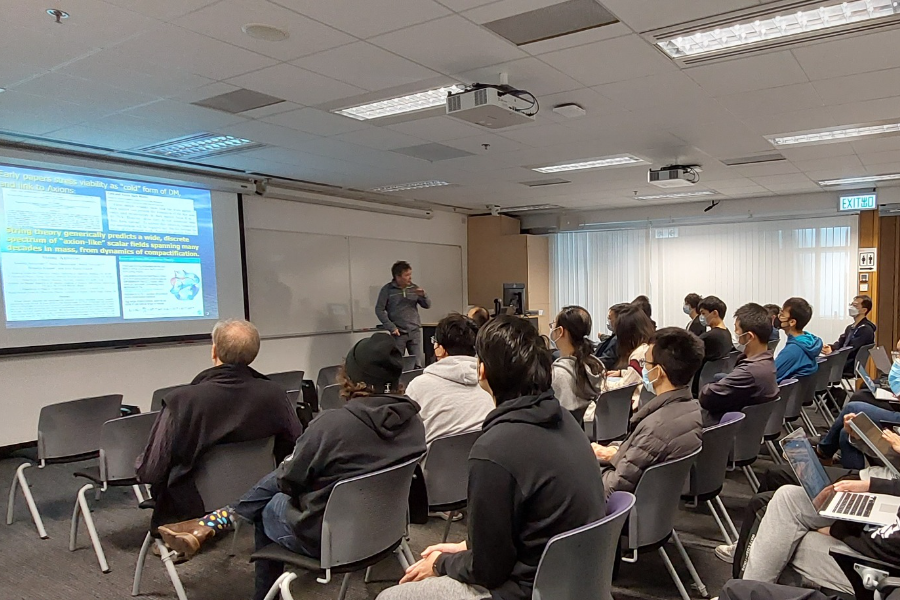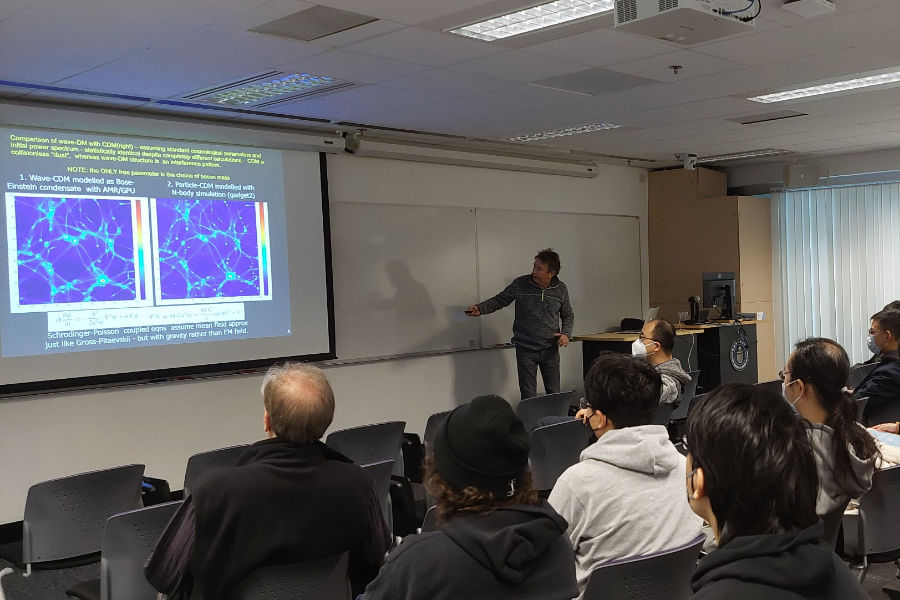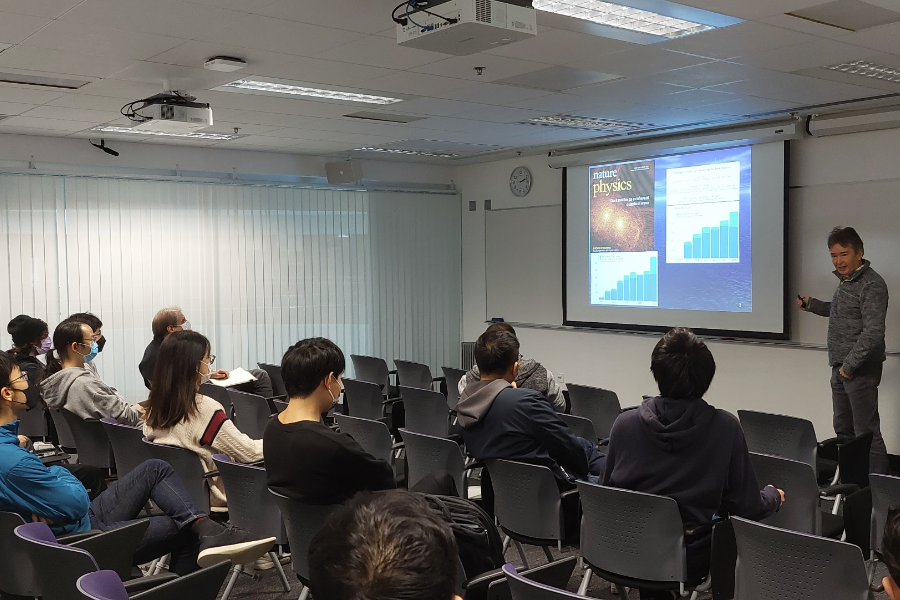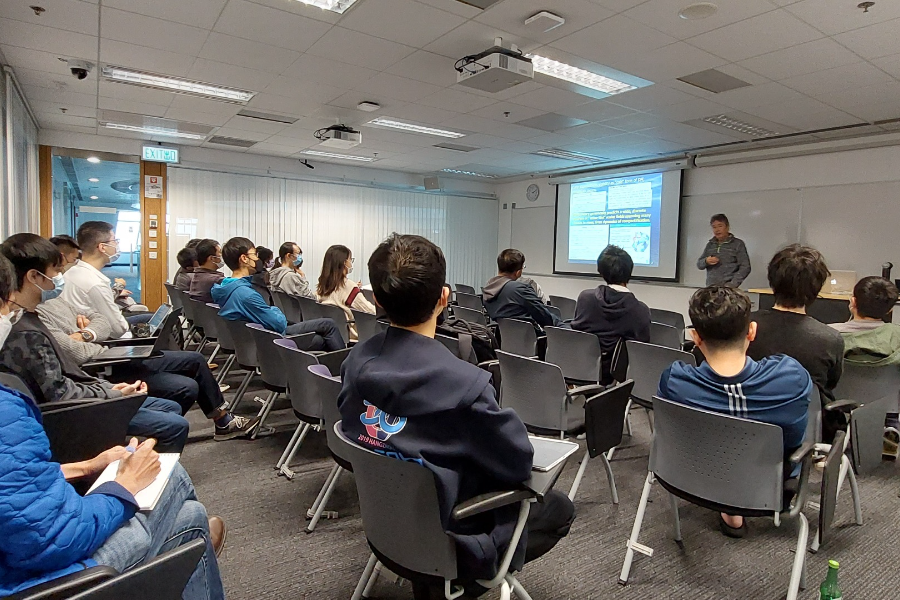Competing Dark Matter Predictions Tested with JWST and Hubble
Abstract
Distinguishing predictions are outlined for DM as light bosons, motivated by String theory, where coherent de Broglie waves generate unique lensing and dynamical effects that compare well with the data, including JWST where the onset of galaxy formation provides a new independent constraint at z~12. We limit dark matter as primordial black holes of LIGO/Virgo mass, using distant micro-lensed stars discovered in our Hubble program on the Einstein rings of massive lensing clusters. The time variability of these lensed stars is not rapid as required for a full column of black holes, but is matched simply by stars comprising the visible light of the clusters. Furthermore, we argue the large chirp masses found to date by LIGO/Virgo implies most black hole binary events are lensed at cosmological distances, 1<z<4, corresponding to conventional stellar black holes of 10M_sun, magnified by intervening galaxies, rather than a new class of high mass, primordial black holes.
About the Speaker
Prof. Thomas Broadhurst received his PhD in Observational Cosmology from Durham University in 1979. He went on to work at Queen Mary University of London, The Royal Observatory, Edinburgh, Johns Hopkins University, the University of California, Berkeley, the European Southern Observatory and Tel Aviv University before joining the University of the Basque Country (UPV/EHU) in Spain in 2010. He is currently the Ikerbasque Research Professor in the Department of Theoretical Physics at UPV/EHU.
Prof. Broadhurst has expertise in most areas of cosmology, including dark matter and lensing, wave dark matter simulations, observational cosmology, graphics processing unit (GPU) optimized computing, Bayesian statistics and astronomical instrumentation. He has pioneered the main gravitational lensing techniques used today, namely weak lensing, cluster lens magnification from background galaxy counts, and multiple image detection in the strong lensing regime for clusters.
Prof. Broadhurst is also a Researcher of Javalambre Physics of the Accelerating Universe Astrophysical Survey (J-PAS) Lensing Program. In 2021, he was invited to join the College of Expert Reviewers of the European Science Foundation.
About the Program
For more information, please refer to the program website at http://iasprogram.ust.hk/particle_theory.






